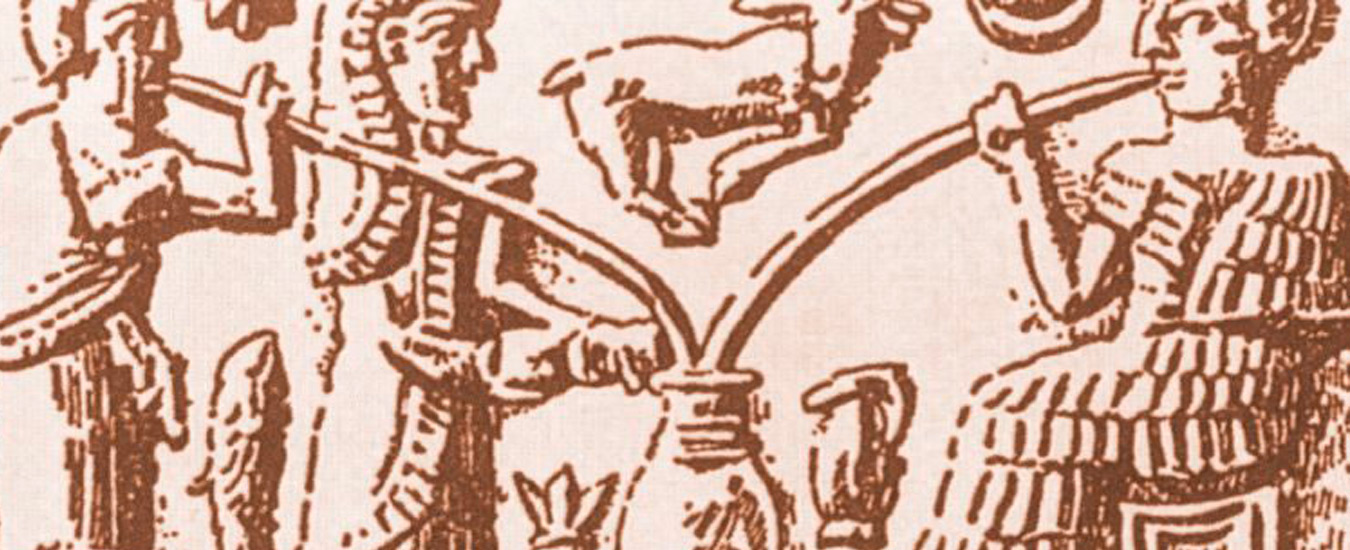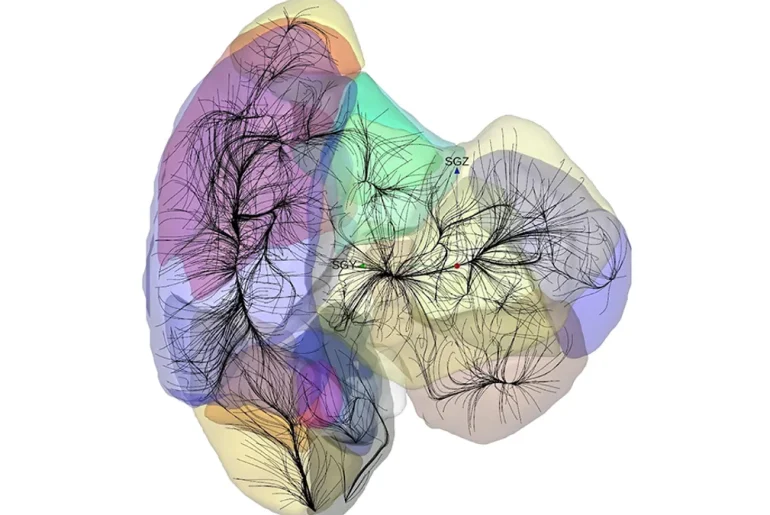Traduzida de duas tábuas de argila por Miguel Civil, professor da Universidade de Chicago, “Hino a Ninkasi” é a receita de cerveja mais antiga da história, que data 1800 a.C..
A cerveja é mais antiga que o vinho, que o uísque e talvez até mais que o pão, como sugerem alguns estudiosos. O processo natural de fermentação está integrado no consumo humano desde que nos tornamos sedentários e começamos a cultivar grãos há 13.000 anos.
Devido ao seu papel central na agricultura, comércio, urbanização e medicina, a cerveja tem sido descrita como “parteira da civilização”.
Fontes documentam a produção deliberada de cerveja na antiga Suméria no século V a.C. E para a cultura antiga da Mesopotâmia a bebida era tão importante que os sumérios louvavam Ninkasi, uma deusa da fabricação de cerveja e da própria cerveja.
A deusa era filha do poderoso criador Enki e Ninti, “Rainha do lago sagrado”, e representa o papel das mulheres na cultura antiga como cervejeiras respeitadas.
Foi então que um poeta anônimo, apaixonado pelos poderes de Ninkasi, escreveu o “Hino a Ninkasi”, que descreve em termos poéticos o processo passo a passo da fabricação da cerveja suméria, também celebra os recipientes em que a cerveja era servida e fabricada e as canções que os beberrões cantavam enquanto bebiam.

A partir da tradução de Miguel, Fritz Maytag, fundador da Anchor Brewing Company em São Francisco testou a receita e apresentou os resultados na reunião anual da Associação Americana de Microcervejeiros, em 1991.
O professor conta que a “Ninkasi Beer” tinha uma concentração alcoólica de 3,5%, muito semelhante às cervejas modernas, e tinha um ‘sabor seco sem amargo’, semelhante à cidra de maçã. Os cervejeiros a degustaram em grandes jarros com canudos, como se fazia pelos sumérios.
Infelizmente a cerveja não foi comercializada pela Montayg, já que era produzida para consumo imediato e não servia para longos processos de armazenamento.
No entanto, Miguel diz que é algo grandioso um mestre cervejeiro produzir tal cerveja a partir de uma receita de 3900 anos e conseguir interpretar “a difícil terminologia e metáforas poéticas”.
Confira abaixo a receita, apenas em inglês.
Hymn to Ninkasi (Part I)
Borne of the flowing water,
Tenderly cared for by the Ninhursag,
Borne of the flowing water,
Tenderly cared for by the Ninhursag,
Having founded your town by the sacred lake,
She finished its great walls for you,
Ninkasi, having founded your town by the sacred lake,
She finished it’s walls for you,Your father is Enki, Lord Nidimmud,
Your mother is Ninti, the queen of the sacred lake.
Ninkasi, your father is Enki, Lord Nidimmud,
Your mother is Ninti, the queen of the sacred lake.You are the one who handles the dough [and] with a big shovel,
Mixing in a pit, the bappir with sweet aromatics,
Ninkasi, you are the one who handles the dough [and] with a big shovel,
Mixing in a pit, the bappir with [date] – honey,You are the one who bakes the bappir in the big oven,
Puts in order the piles of hulled grains,
Ninkasi, you are the one who bakes the bappir in the big oven,
Puts in order the piles of hulled grains,You are the one who waters the malt set on the ground,
The noble dogs keep away even the potentates,
Ninkasi, you are the one who waters the malt set on the ground,
The noble dogs keep away even the potentates,You are the one who soaks the malt in a jar,
The waves rise, the waves fall.
Ninkasi, you are the one who soaks the malt in a jar,
The waves rise, the waves fall.You are the one who spreads the cooked mash on large reed mats,
Coolness overcomes,
Ninkasi, you are the one who spreads the cooked mash on large reed mats,
Coolness overcomes,You are the one who holds with both hands the great sweet wort,
Brewing [it] with honey [and] wine
(You the sweet wort to the vessel)
Ninkasi, (…)(You the sweet wort to the vessel)The filtering vat, which makes a pleasant sound,
You place appropriately on a large collector vat.
Ninkasi, the filtering vat, which makes a pleasant sound,
You place appropriately on a large collector vat.When you pour out the filtered beer of the collector vat,
It is [like] the onrush of Tigris and Euphrates.
Ninkasi, you are the one who pours out the filtered beer of the collector vat,
It is [like] the onrush of Tigris and Euphrates.
[Fontes: Open Culture | The Oriental Institute ]
Leia também: Hidromel: Mitos e verdades sobre a bebida mais antiga do mundo










